Despite the falling stock prices it's retained its diehard user base impressively and continues to be the world's biggest microphone and a platform many people prefer over email or other kinds of private messages.
As a business with an image to uphold, you don't want to be without defence in such a huge public forum. You also don't want to exclude the segment of your user-base that prefers to communicate via Twitter.
The solution? For 65% of the top 20 SaaS (Software as a Service) companies, the solution is to use a Twitter account — dedicated or not — to directly speak to users, not just broadcast updates or content.
Due to the volatile public nature of Twitter, are these accounts set up with the idea of helping users, or just for damage control?
To find out, I analysed 12,844 tweets and did sentiment analysis on both the tweets received from users and the tweets from the companies.
Here's what I found.
While it does vary massively by company, you can see that the majority of tweets from users are negative or neutral in sentiment.
What this means:
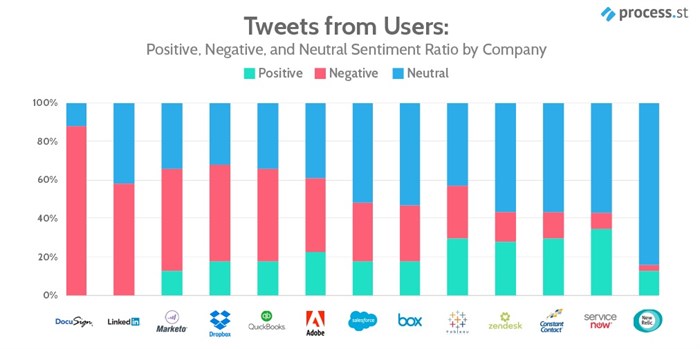
Here's an example of a tweet with a negative score from a Dropbox customer:

And here's a neutral tweet from a New Relic customer:

So, now we know how customers use Twitter to interact with companies, what about how companies communicate with users?
The vast majority of tweets to companies are requests for support or customers venting their frustrations.
The traditional way to deal with a frustrated customer would be to help them resolve their issue but, as we'll see, that doesn't happen very often.
To analyse problem-solving abilities, another metric needs to come into play: objectivity.
Objective tweets are indications of hard information being given to a customer. In other words, a concrete solution.
Let's look at the percentages of objective (problem-solving) to subjective (apologies, acknowledgements, requests for more information, thanks) tweets by company:
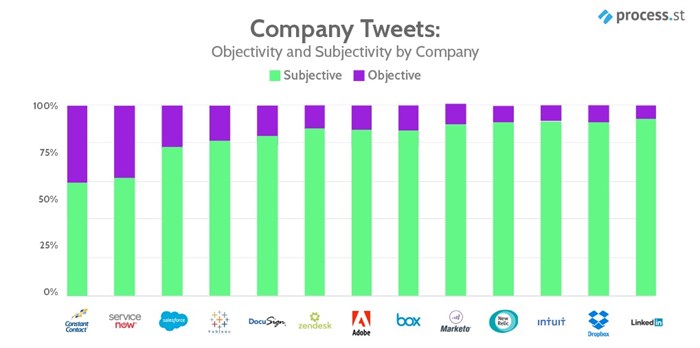
The conclusion? Most companies don't offer concrete help to users over Twitter. The majority of interactions are either requests to take the conversation to a private channel (DMs, email), or apologies.
This can be further divided up to look at combinations of subjectivity and sentiment.
Subjective tweets aren't always a bad thing: they can be damage control or the last word in a positive interaction.
Tweets that score subjectively but with positive sentiment are often the company rounding up a positive conversation with a user, like this:
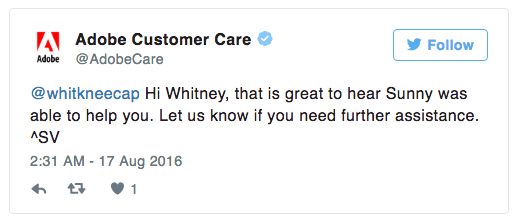
Tweets that score subjectively but with negative sentiment are often the company doing damage control. Basically, apologising or trying to get the user to take their frustrations to a private channel and out of the public eye.
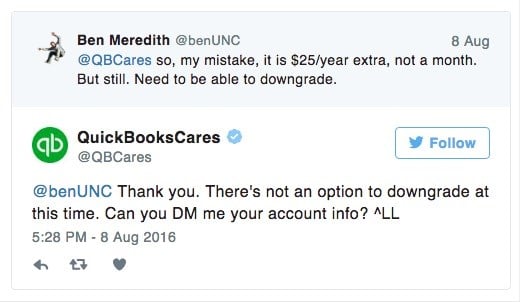
To put this in context, here are the percentages of subjective-positive tweets by company:
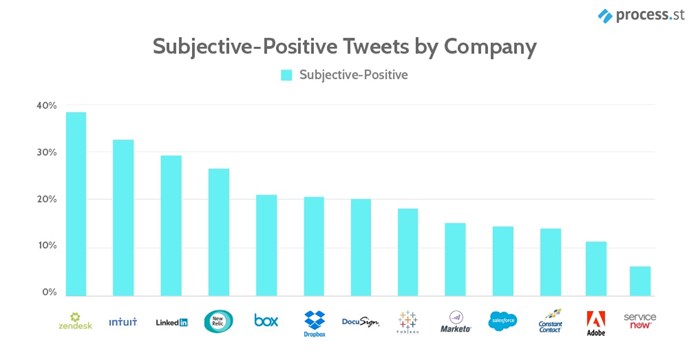
And here's the graph of subjective-negative tweets:
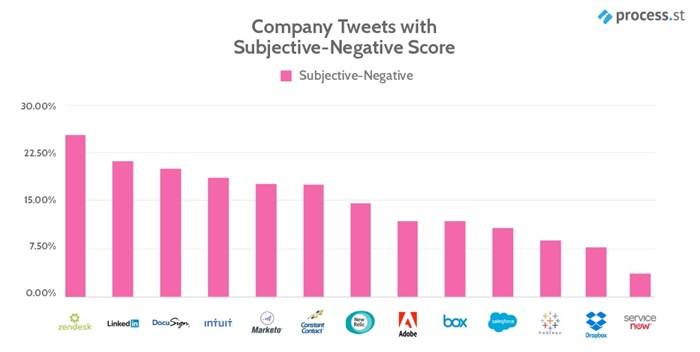
Out of the analysed companies, none get as many frustrated users on Twitter than DocuSign, LinkedIn and Marketo.
This could be for a number of reasons, but the strongest correlation from my analysis is that they offer relatively little in the way of objective tweets:
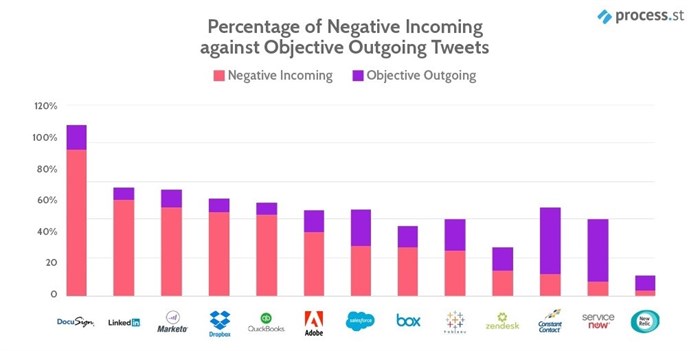
That means that they don't often solve user's problems over Twitter. It could be because of poor support processes, or the drive to take angry users off Twitter and into direct messages where they can cause less of a scene. Either way, it goes to show that if you don't comply with what your customers want (e.g. support on Twitter, not elsewhere), your customers will be prone to get angry.
At the other end of the scale, the graph above also shows which companies are the most effective problem solvers, and how that it pays off:
Constant Contact and ServiceNow are the best problem solvers and get far less negativity because of it
Constant Contact and ServiceNow are, by a significant margin, the most regular tweeters of objective, helpful information to their customers. They're roughly twice as helpful as the third place, Salesforce, and over five times more helpful than the lowest scorers.
Their stellar efforts make an impact: they get far fewer negative tweets than the average company, which means less damage control is necessary by virtue of being helpful in the first place.
A concise breakdown of what you can take away from this study:
ServiceNow and Constant Contact obviously have a solid process set up to support users over Twitter because they consistently behave in the way that gets the most positive reaction from users. They are, after all, companies that sell communications software.
In the end, the key takeaway is that Twitter users are tweeting, not emailing, companies for a reason. Don't ask them to take their conversation elsewhere, just create a support process that means your Twitter support team has an answer for every common question and can provide that answer in a link to a help article or in tweet form.